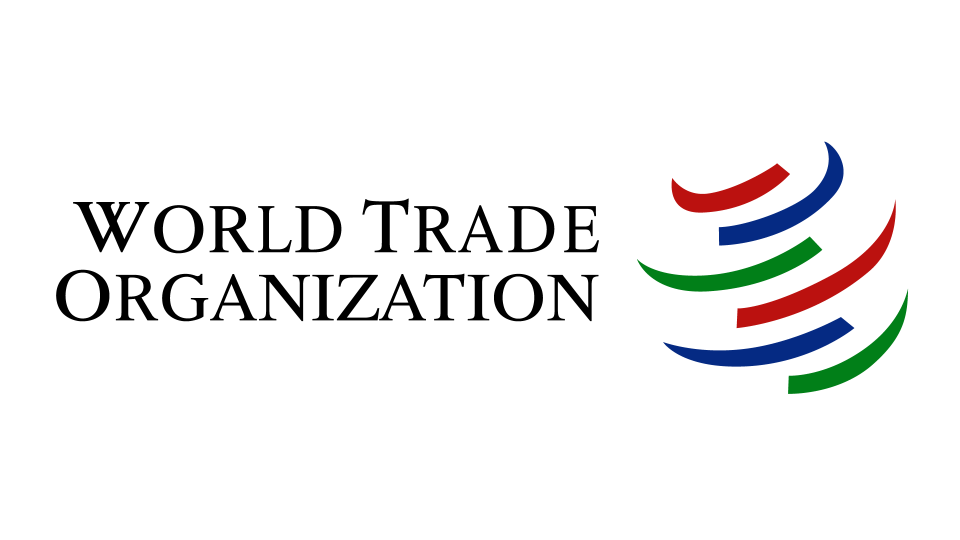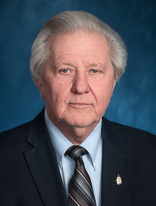Trumping the WTO
This month is the one-year anniversary of Alcoa closing the largest aluminum smelter in the United States – the Warrick in Indiana.
More than 325 workers lost their family-supporting jobs, including Brandon Marshall, who, like most aluminum workers, was a member of my union, the United Steelworkers (USW). Brandon told the New York Times last week that he found another job, but it pays only about half what he earned before, so his wife had to go back to work.
Alcoa also shut down its Wenatchee smelter last year, laying off 420 workers in Washington State, including Josh Busjahn, who told a reporter from public radio's Marketplace that he had to cut his family’s budget in half.
In 1970, there were 24,000 aluminum smelter workers nationwide. Now, there are 2,200. Just 17 years ago, the United States had 23 smelters. Now, there are five. And only one is operating at full capacity.
A major cause of this suffering and job loss is China’s violation of trade rules. Beijing overbuilt its aluminum capacity to keep its citizens employed, then dumped the subsidized excess on the world market, artificially suppressing prices. In January, the Obama administration filed a complaint against China with the World Trade Organization (WTO) in an attempt to stop Beijing’s destruction of the American industry, one that is crucial to national defense.
But the outlook for this case isn’t great. The WTO has repeatedly stiffed the United States. It’s supposed to adjudicate trade disputes, but a new report, commissioned by the Alliance for American Manufacturing (AAM) and titled, “How the WTO Undermines U.S. Trade Remedy Enforcement,” shows that the WTO treats the United States like a punching bag that must suffer the economic blows of trade cheating by nations worldwide.
For a quarter century, since the dawn of NAFTA, the USW has called for fair trade and protection for American manufacturers like Alcoa and workers like Brandon and Josh against abuses such as currency manipulation, government subsidization and dumping. Finally, last week, President Donald Trump announced the United States would not be bound by WTO decisions. That sounded great to laid-off manufacturing workers nationwide.
The President’s action is supported by findings in the Alliance for American Manufacturing report written by trade law experts Terence P. Stewart and Elizabeth J. Drake. The report shows that the WTO has taken a hugely disproportionate number of cases against the United States. And in those cases, the WTO ruled against the United States a shocking 90 percent of the time, a rate that seriously erodes America’s ability to enforce its own trade laws.
Stewart and Drake wrote, “The world trading system depends on countries’ ability to take rapid, effective, and meaningful action against unfair dumping and subsidization that is harming their manufacturers, farmers, ranchers, and workers. That ability is currently being undermined by the WTO dispute settlement system, contrary to the system’s original design.”
Since 1995 when the WTO was established, it heard 42 trade remedy cases involving the United States and issued 38 decisions against the United States. That means that in 38 instances when the U.S. imposed sanctions against foreign companies for violating U.S. trade laws, the WTO ordered reversal of those rulings. It’s nearly five times the number for any of the other 163 member countries.
In addition, the report points out that the WTO’s focus on trade sanctions is out of line. Forty-five percent of WTO final or interim decisions have challenged trade remedies, even though these measures, such as tariffs, affect a minuscule portion of world trade.
Stewart and Drake note that WTO decisions have “prompted legal scholars to criticize dispute panels, and especially the Appellate Body, for going beyond their mandate and creating new rights and obligations beyond those contained in the WTO agreements.” They also point out that the U.S. Trade Representative and other WTO members have repeatedly expressed concern about WTO over-reaching.
“For years, Congress has identified reining in the WTO dispute settlement system and preserving the ability of the United States to rigorously enforce its trade remedy laws as key trade negotiating objectives,” the report states.
That is what the Trump administration told Congress last week it intends to do. America will defend its “national sovereignty over trade policy,” the Office of the U.S. Trade Representative said in its annual report to Congress. Under the terms of its entry into the WTO, the U.S. didn’t abandon its own trade rights, the annual report says.
Free traders responded immediately with complaints. For example, Eswar Prasad, a senior professor of trade policy at Cornell University, told the Washington Post: “If the Trump administration follows through on the proposals in this document, it would be a body blow to the multinational trade system that the U.S. has helped to build up. . .The WTO will lose effectiveness and credibility in trade resolutions if the U.S. decides to walk away.”
The United States helped build up a multinational trade system that is tearing down American manufacturing. That system already has lost credibility by focusing the vast majority of its enforcement on the United States, which from 1995 to 2015 accounted for only 14.17 percent of global imports and imposed only 12.73 percent of trade sanctions among the WTO nations.
The current system, as last week’s Alliance for American Manufacturing report points out, is deeply flawed. It’s not free trade. It’s faulty trade. Companies like Alcoa and U.S. Steel, workers like Brandon and Josh, communities like Wenatchee and Warrick are all suffering as a result. The president is right to move the country toward fair trade by trumping the WTO.


